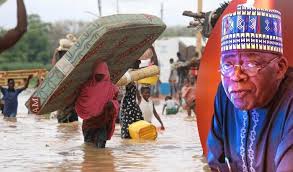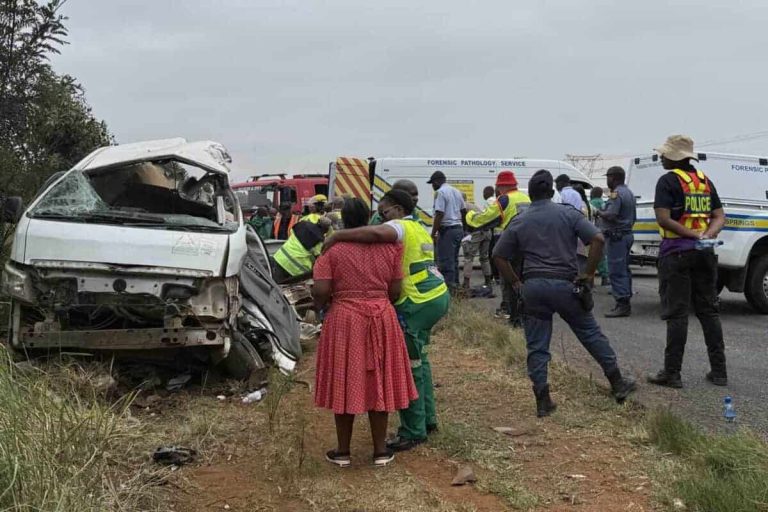
President Bola Ahmed Tinubu has launched the Global Flood Disaster Management Project (GFDMP), a multi-year initiative aimed at mitigating the effects of climate change and strengthening Nigeria’s long-term flood resilience. The launch took place on Tuesday, November 25, 2025, in Abuja, with the President represented by the Minister of Agriculture and Food Security, Sen. Abubakar Kyari.
Tinubu described the GFDMP as a shift from a reactive approach to floods toward a proactive and preventive strategy. “Resilience is not built in a moment, but through consistent investment, planning, monitoring, and innovation over time”, Tinubu said, stressing that climate solutions must be strategic, coordinated, and sustainable.
Highlighting the national significance of the initiative, he noted, “The federal government views this project as a major step in tackling climate-related disasters that ravage farmlands, displace families, and cripple infrastructure nationwide.”
The GFDMP is anchored on four core pillars:
-
Advanced Early Warning Systems
-
Flood-Resilient Infrastructure
-
Capacity Building and Knowledge Transfer
-
Community Engagement and Local Participation
The project will enhance forecasting capacity, introduce real-time monitoring, and deploy digital alert systems, giving both citizens and government agencies more time to prepare and respond.
Tinubu added, “Nigeria is proud to be part of this global movement. Our government has already prioritised early warning systems, modern hydrological infrastructure, improved disaster-response coordination, and environmental protection. The GFDMP will strengthen and accelerate these priorities through global expertise and technological support”.
He pledged “full cooperation, active participation, and unwavering commitment to ensuring this multi-year programme reaches every community that needs it”, adding, “Let today mark the beginning of a new era, one in which nations face floods not with fear, but with preparation; not with vulnerability, but with resilience; not with isolation, but with partnership”.
Tinubu concluded: “Flood resilience is not a luxury; it is a necessity. It is a responsibility we owe to our citizens today and to our children tomorrow. Together, may we build a world where no community must live in fear of the next flood”.
In his welcome address, the Director-General of the Nigeria Hydrological Services Agency (NIHSA), Umar Mohammed, emphasised the human cost of floods, noting that recent risk figures represent real families whose livelihoods have been disrupted. He urged proactive preparedness, stating that it is far cheaper and more effective than emergency response.



